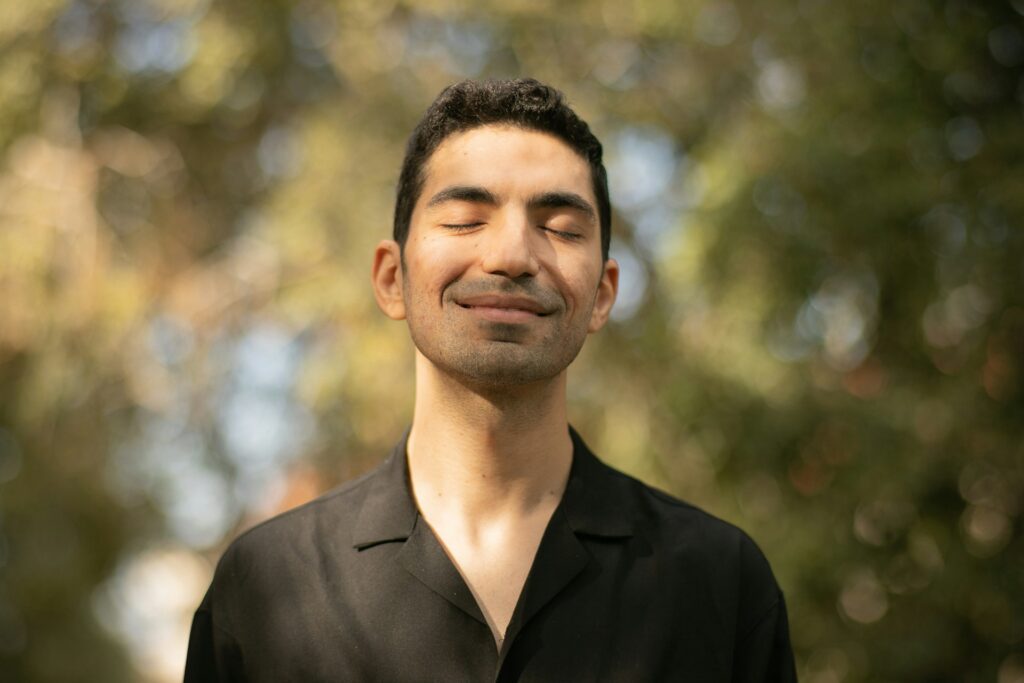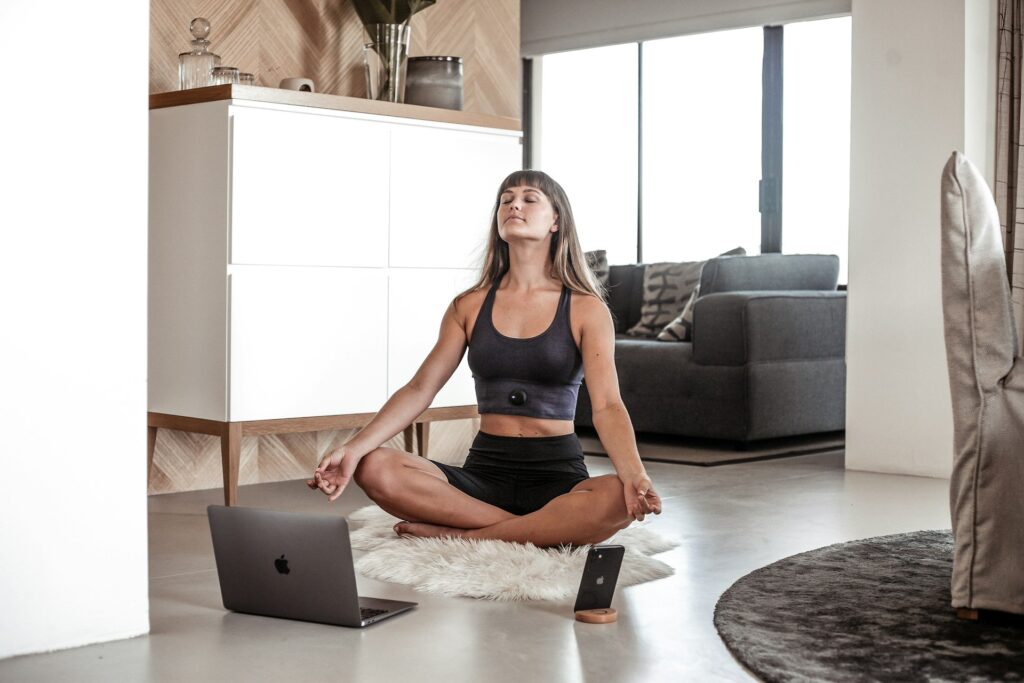Wellness culture has taken over all around the world in the past decade or so.

In the UK alone, it’s an industry worth more than £225 billion, according to the Global Wellness Institute. Everywhere you look, there’s a new fitness trend, diet plan, or self-care ritual designed to help you be the best version of yourself. On the surface, it all sounds great, right? Who doesn’t want to feel healthier, happier, and more balanced? But beneath the shiny promises and perfectly curated Instagram feeds, wellness culture can have some pretty toxic side effects.
Far from being a simple path to health and happiness, the pressure to live up to wellness ideals can actually make you feel like you’re falling short. Instead of empowering you, it can leave you feeling inadequate, overwhelmed, and, ironically, more stressed. If you’ve ever found yourself scrolling through social media, seeing everyone else’s perfect routines, and thinking, “Why can’t I do that?”—you’re not alone.
Here’s how wellness culture might actually be making you feel like you hate your life more, and why you don’t need to buy into the hype to live a fulfilled existence.
The pressure to be perfect is absolutely overwhelming.

Wellness culture often promotes an unrealistic standard of perfection. Whether it’s having the “perfect” morning routine, following a strict diet, or hitting a certain number of workouts per week, it can feel like the only way to be truly “well” is to be perfect all the time. But that’s not realistic or sustainable.
When you constantly compare yourself to these seemingly flawless standards, it’s easy to feel like you’re falling short. The pressure to be perfect in every area of your life—physically, mentally, emotionally—can lead to burnout, guilt, and stress. No one is perfect, and that’s okay. Embracing imperfection is a much healthier approach than constantly striving for an ideal that doesn’t exist.
You think that if you’re not happy all the time, you’re somehow failing.

One of the biggest issues with wellness culture is the pervasive idea that you should always be happy, positive, and full of energy. There’s an overwhelming focus on positivity and “good vibes,” but the reality is that life isn’t always happy. Everyone has bad days, struggles, and moments of frustration; that’s part of being human.
Wellness culture often ignores the complexity of real emotions. If you’re having a tough time or not feeling 100% happy, it can make you feel like you’re doing something wrong. But happiness isn’t a constant state, and you’re not failing just because you’re feeling low or stressed. Acknowledging and accepting your feelings, even the difficult ones, is a healthier approach than constantly chasing a “perfect” version of happiness.
It makes you feel like you’re not doing enough.

From superfoods to mindfulness apps to elaborate skincare routines, wellness culture is built on the idea that there’s always something more you could be doing to improve your life. It creates an endless checklist of things you “should” be doing—morning meditations, eating clean, working out, journaling, and the list goes on.
This can make you feel like you’re never doing enough, even when you’re already juggling a million things. The truth is, you don’t have to do every wellness trend to be healthy or fulfilled. You don’t need to tick off a checklist of wellness activities to feel good about yourself. Sometimes, taking a step back and simplifying your life can be just as beneficial.
It focuses too much on “fixing” yourself.

Wellness culture is often marketed with the idea that there’s something broken about you that needs to be fixed. Whether it’s your body, mind, or lifestyle, the constant push for improvement can make you feel like you’re never enough as you are. This can lead to a sense of dissatisfaction, like no matter how hard you try, you’re still not measuring up.
Instead of focusing on “fixing” yourself, it’s more empowering to approach wellness from a place of self-acceptance. You don’t need to constantly strive for self-improvement to feel worthy or valuable. Embracing who you are right now, flaws and all, is a much healthier and more fulfilling mindset.
It can create a toxic comparison culture.

With the rise of wellness influencers on social media, it’s easier than ever to compare your life to someone else’s. You see people posting their morning yoga flows, kale smoothies, and perfectly organised meditation spaces, and it can be easy to feel like you’re not doing enough. This comparison culture breeds a sense of inadequacy, like you should be doing more to keep up with the trends.
But remember, what people post online is often a curated version of their life. You’re only seeing the highlights, not the full picture. Social media can make it seem like everyone else is living the “perfect” wellness life, but behind the filters and hashtags, everyone is just trying to figure it out, just like you.
It’s a never-ending cycle of consumption.

Wellness culture thrives on consumption—new products, services, and trends that promise to make you feel better. You’re constantly told that you need the latest superfood powder, the newest fitness gadget, or the most recent app to improve your life. This cycle of consumption can be draining, both mentally and financially.
But the reality is that you don’t need all of these things to live a happy, healthy life. True wellness comes from within, through simple practices like eating nourishing food, moving your body, resting, and connecting with other people. You don’t need to spend money on every new trend to feel good.
It can lead to overexertion and burnout.

Many wellness trends encourage pushing yourself to the limit. From hitting a certain number of steps per day to tracking every calorie, it’s easy to get caught up in the idea of constant self-optimisation. While some of these habits can be beneficial, pushing yourself too hard can lead to burnout.
Wellness shouldn’t be about overexertion; it should be about balance. Taking breaks, resting, and giving yourself permission to slow down are just as important as any fitness routine or healthy eating plan. If your wellness routine is leaving you exhausted and stressed, it’s time to reassess what’s truly working for you.
It can make you feel like your worth is tied to your appearance.

Wellness culture often places a heavy emphasis on physical appearance, whether it’s having a “toned” body, glowing skin, or looking a certain way. While taking care of your body is important, tying your self-worth to your appearance can be damaging. This mindset can make you feel like you’re only valuable if you meet certain physical standards.
True wellness is about feeling good from the inside out, not about conforming to society’s beauty standards. Your worth isn’t defined by how you look, and taking care of yourself should be about feeling healthy, strong, and content, regardless of your physical appearance.
It ignores the importance of rest and recovery.

In the hustle to live a perfectly balanced, healthy life, wellness culture often overlooks the importance of rest. It’s easy to fall into the trap of thinking that you need to be constantly active, productive, and doing something to improve yourself. Of course, the reality is that rest and recovery are just as important as working out, eating well, or meditating.
Overworking yourself, whether it’s physically or mentally, can leave you feeling drained, anxious, and disconnected. Wellness isn’t just about productivity; it’s about giving yourself space to rest, recharge, and restore.
It makes you feel like you’re failing if you can’t keep up.

One of the biggest downsides of wellness culture is the pressure to keep up with the latest trends and practices. If you can’t maintain the perfect routine or keep up with everyone else’s progress, it can make you feel like you’re failing. That creates unnecessary stress and sets you up for feelings of inadequacy.
The reality is, wellness isn’t a competition. You don’t have to be doing everything right to be healthy and happy. It’s about finding what works for you and doing it at your own pace.
Wellness doesn’t have to be a burden.

While wellness culture offers some great ideas for taking care of yourself, it’s important to recognise that it’s not the be-all and end-all of happiness or health. Striving for balance, rest, and self-acceptance is a much healthier approach than constantly chasing an ideal that feels unreachable.
True wellness is about being kind to yourself, letting go of perfection, and embracing what works for you, not what you think you “should” be doing. So, take a step back, stop chasing trends, and remember that wellness starts with how you feel, not how you look or what you’re doing.


